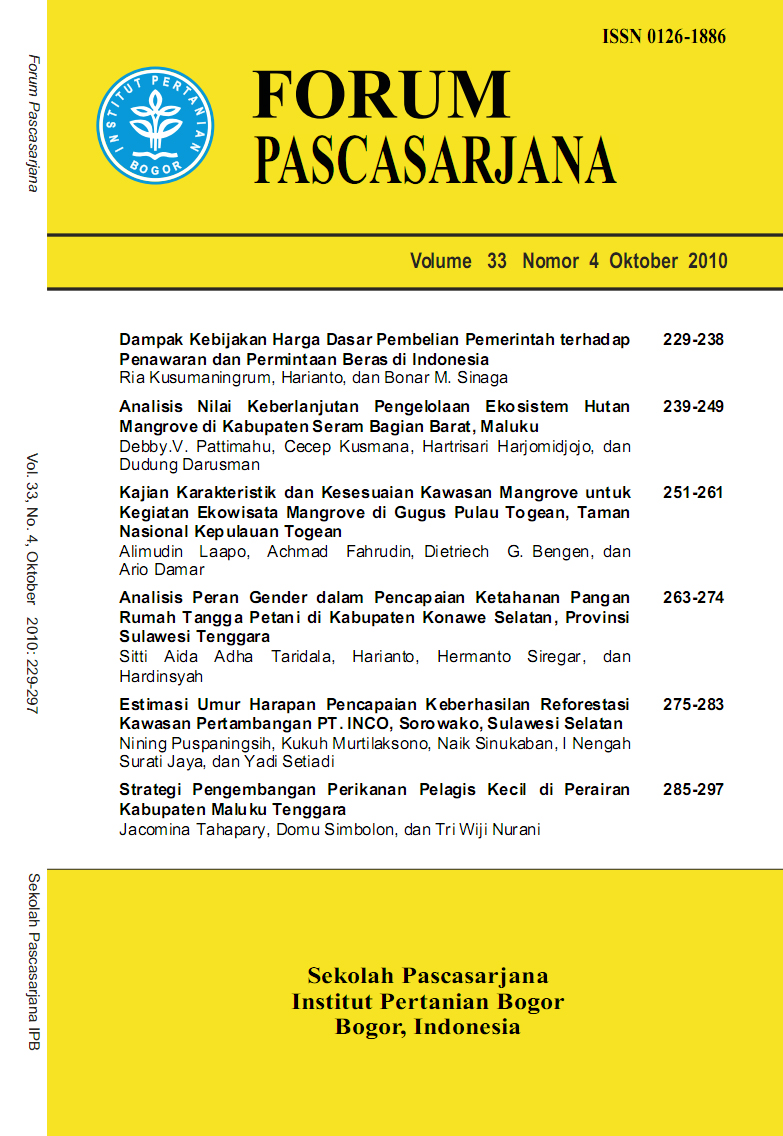<p class="MsoNormal" style="text-align:justify;text-indent:1cm;"><em><span style="font-size:10pt;" lang="in" xml:lang="in">Gender and food security are highly correlated. <span> </span>The specific aims this study are (1) to analyze working time allocation based on gender, (2) to examine the income contribution of women to family income, and (3) to evaluate factors affecting food security at household level. <span> </span>The phenomena of gender inequality and the high rate of malnutrition cases in the District of South Konawe indicate the persistent of food insecurity problems in household level. <span> </span>Descriptive-qualitative analysis was employed to examine the first two objectives, while econometric approach was used to analyze the last.<span> </span>Due to the dependent variable has biner characteristic, logit model was employed, and since the cumulative distribution of dependent variables was nonlinear, maximum likelihood was employed to estimate the parameter.<span> </span>The results of this study were : (1) gender working time allocation shows different pattern between man and women, while women working time allocations was focused on domestic activities, man working time allocation was concentrated on farming activities, (2) women contribute more income<span> </span>from non-farm activities compared to man did, and (3) factors considered to affect the food security at farmer’s household level were family size, gender based income of non farm activities, and on-farm income.</span></em></p> <p class="MsoNormal" style="text-align:justify;"><em><span style="font-size:10pt;" lang="in" xml:lang="in"> </span></em></p> <p class="MsoNormal" style="margin-left:2cm;text-align:justify;text-indent:-2cm;"><em><span style="font-size:10pt;" lang="in" xml:lang="in">Key words: gender, food security, logit model, maximum likelihood estimation, income</span></em></p>
Abstract
Gender and food security are highly correlated. The specific aims this study are (1) to analyze working time allocation based on gender, (2) to examine the income contribution of women to family income, and (3) to evaluate factors affecting food security at household level. The phenomena of gender inequality and the high rate of malnutrition cases in the District of South Konawe indicate the persistent of food insecurity problems in household level. Descriptive-qualitative analysis was employed to examine the first two objectives, while econometric approach was used to analyze the last. Due to the dependent variable has biner characteristic, logit model was employed, and since the cumulative distribution of dependent variables was nonlinear, maximum likelihood was employed to estimate the parameter. The results of this study were : (1) gender working time allocation shows different pattern between man and women, while women working time allocations was focused on domestic activities, man working time allocation was concentrated on farming activities, (2) women contribute more income from non-farm activities compared to man did, and (3) factors considered to affect the food security at farmer’s household level were family size, gender based income of non farm activities, and on-farm income.
Key words: gender, food security, logit model, maximum likelihood estimation, income

